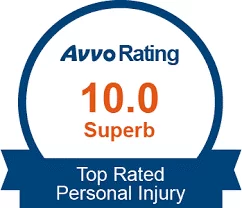Head Injuries

Head Injury after an Accident
Any number of things can cause a head injury: from a fall, to a car crash, or accident at work. Following are some symptoms of head injuries, diagnosis and treatment options, common causes, and some information about pursuing a legal claim for your injury.
Head Injury Symptoms
A brain injury generally causes symptoms like headache, dizziness, confusion, and nausea. After sustaining a head injury, you may feel extremely tired or sluggish, or you may experience numbness or weakness on one side of your body. Other symptoms include vomiting, loss of consciousness, short-term memory loss, and slurred speech. If you experience any of these symptoms after a head injury, you should seek medical attention immediately.
In addition to these symptoms, signs of a concussion include feeling pressure in the head, experiencing blurry or fuzzy vision, feeling foggy, experiencing a ringing in the ears, appearing dazed, suffering amnesia, having trouble balancing, and reacting with a delay. You may have trouble concentrating, experience personality changes and irritability, suffer from a lack of energy, or become especially sensitive to noise and light. Head injuries can also cause emotional disruptions such as sadness, nervousness or anxiety, and becoming easily angered or upset. Sometimes a head injury affects sleeping patterns, making it difficult for you to fall asleep, causing you to sleep more than usual, or causing you to sleep less than usual.
These symptoms may be immediate, or they may not show up until later. They may last for weeks or only days. However, if you receive a head injury, you should see a doctor within one or two days of sustaining the injury – even if you don’t require emergency care.
Diagnosis and Treatment
Doctors diagnose head injuries by examining patients’ symptoms, asking questions, and performing imaging tests. Your doctor may ask you questions to find out how well you can concentrate, remember, and learn new things. He or she may also test your balance, coordination, and reflexes. In addition, the doctor may perform imaging tests like MRIs and CT scans to check for internal bleeding or bruises.
Treatment for a head injury can be different depending on the severity of the injury. For a mild concussion, your doctor may prescribe rest and pain medication; whereas for a more serious injury, you may need anti-seizure medication or even surgery. If an injury has affected your speech or movement, you may need therapy in order to recover fully.
Again, recovery time depends on the extent of the injury: some people recover within a few days or even hours, while some take weeks or months to feel better. Patients with extreme brain injuries that require therapy may take years to fully return to their pre-injury state of health.
Causes of Head Injuries
Head injuries can be caused by a fall, a traffic or bike accident, a contact sport like football or boxing, or an activity like skiing or snowboarding. You might receive a head injury during an accident at work, or, for a child, an accident on the playground or in their car seat. Anything that causes trauma to the head or to the neck can result in bleeding, bruising, tearing, or swelling of the brain.
The brain is soft, but the skull is hard – which means that in an accident, the brain can jar against the skull and become damaged. Most of the time, the fluid around the brain protects it from hitting the skull; but sometimes a hard blow or a sudden force causes injury regardless of the fluid. This might happen if your head is shaken violently or struck by a blow – as in a car accident or a fall.
If the injury involves a fracture in the skull, it’s called an open injury. By contrast, an injury without a fracture is a closed injury. Because it often involves internal bleeding and swelling, a closed injury can be even more serious than an open one.
Legal Claim after a Head Injury
In many cases, a head injury can result in costly medical expenses and lost work time. In more serious instances, it can affect your ability to work long-term. It may require rehabilitation and assisted living, and it may even decrease your quality of life. Because this is the case, you may be able to receive financial compensation for a head injury that occurred through an accident for which someone else was to blame. If the party responsible for the accident failed to use reasonable care to prevent it from happening, they may be guilty of negligence. On the other hand, if your injury was caused by a defective product or piece of equipment, you may be able to claim product liability. In either case, if the other party is found to be at fault, he or she may be required to compensate you for the costs of your injury, and for related pain and suffering.
Contact an Experienced Atlanta Personal Injury Lawyer
In most cases, your injury alone constitutes a personal injury claim. At the end of the day, however, your position in the situation matters. Contact us today to determine your legal options. By examining the facts around your accident, your attorney provider can secure compensation, defend your rights and ensure top-quality damage restoration. Even if you were partially negligent, the main party at fault, in most cases, will need to support your recovery.
Schedule a case review
Professional Associations

Required Field*
![]() Your Information Is Safe With Us
Your Information Is Safe With Us
We respect your privacy. The information you provide will be used to answer your question
or to schedule an appointment if requested.
Recent Posts
5 Common Injuries from a Scooter Crash in Atlanta
Atlanta’s streets have seen a surge in popularity of e-scooters. These zippy little vehicles offer a convenient…
What to Expect Legally After a Georgia Truck Accident
Truck accidents, unfortunately, occur all too frequently, leaving a trail of devastation in their wake. These incidents…
What Are the Three Main Categories of Distracted Driving in Georgia?
Every day, Georgia’s roads witness a silent crisis that claims an average of five lives. Though the…





